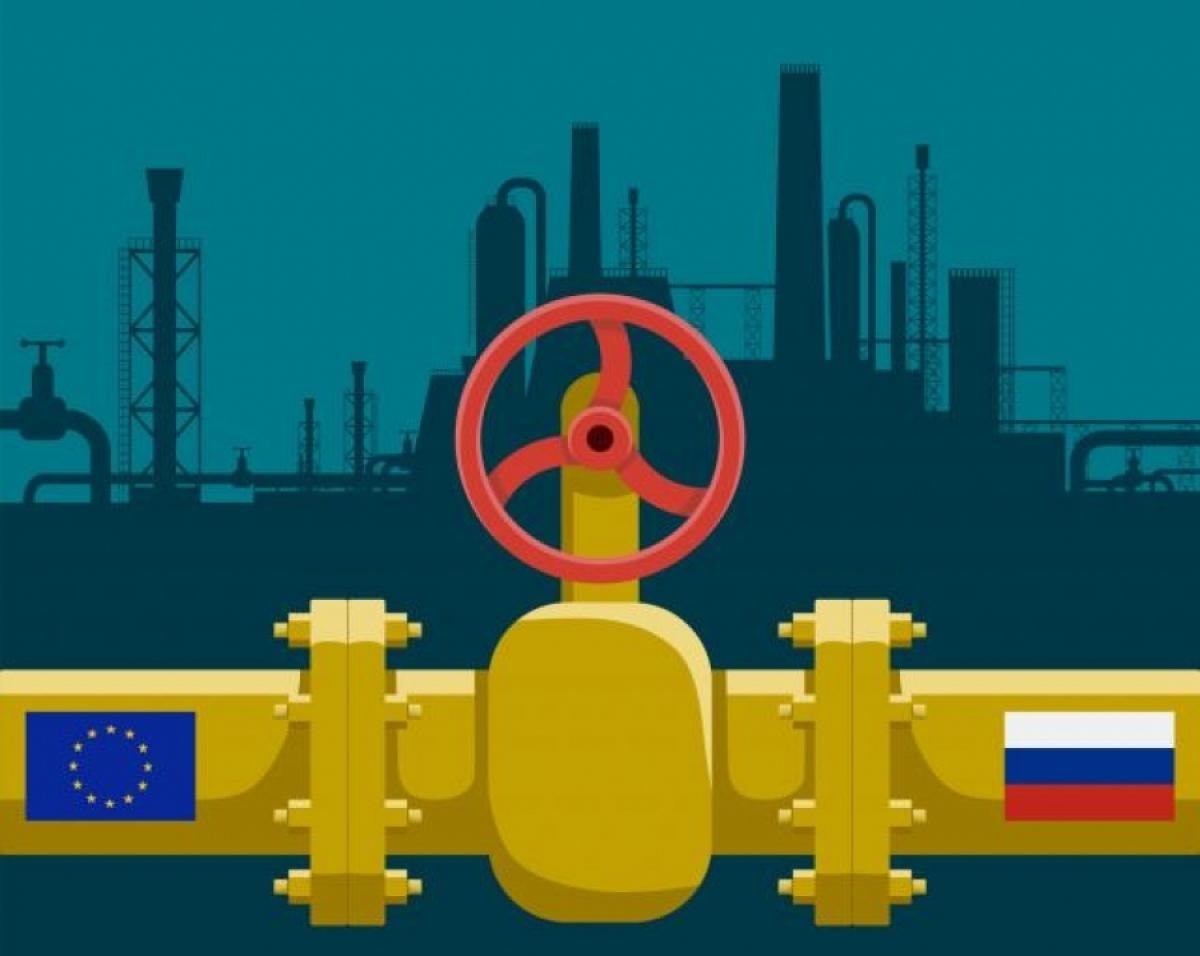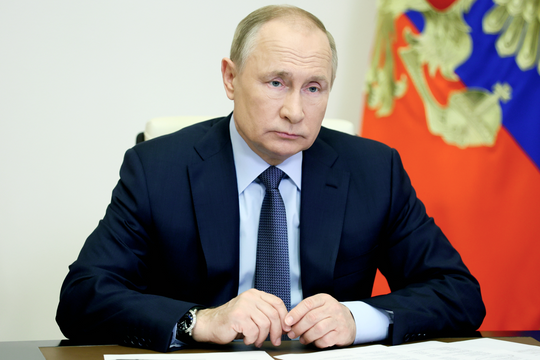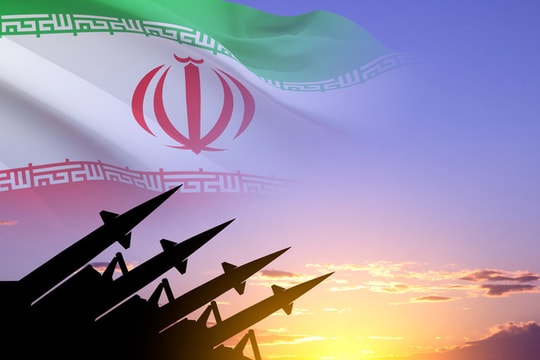Europe's terrible nightmare if Russia cuts off gas supplies permanently
If Russia is willing to cut off gas supplies permanently, it will be a terrible nightmare for Europe with serious consequences not only economically but also politically and socially.
A huge shock to the economy
A few weeks ago, the American financial firm JP Morgan warned that if Russia completely stopped exporting oil, the world economy would experience such a shock that oil prices would quadruple to nearly $400 a barrel. The current price is around $100 a barrel.
Because the world remains heavily dependent on oil, this shock to the global economy would be even worse than that of the 1970s, and risks plunging many countries into a deep recession.
 |
Illustration: Dreamstime |
In addition, this week, Russia stopped supplying most of its natural gas to Europe via the Nord Stream 1 pipeline as part of routine maintenance. Moscow has also cut off gas deliveries to several European countries in recent months, a move that is believed to have contributed to persistently high energy prices. It’s not hard to see what comes next and why the impact will be so dramatic.
Russia has made billions of dollars from oil and gas thanks to high energy prices since launching its military campaign in Ukraine, despite tough Western sanctions. Oil and gas prices are internationally regulated, but in this market Russia plays a dominant role. With global supplies stretched to the limit, a further ban on Russian exports would push energy prices to what JP Morgan called “horrific” levels.
While the US has plenty of resources to meet its own needs, Europe is heavily dependent on Russia. German and Italian industry would be paralyzed by rising energy prices and thousands of companies would go bankrupt. Millions would be unemployed and energy bills would skyrocket unsustainably. Millions would not even be able to cook or use cars.
The West accuses Russia of using fossil fuels as weapons. Russia recently cut off gas supplies to several European countries if they do not pay in rubles. The war in Ukraine has also restricted food exports and pushed up world food prices.
Some argue that cutting off supplies to Europe would be tantamount to cutting off its own income, but the Kremlin has the financial means to cope.
Instead, a Russian gas cutoff would cause a huge shock to economies dependent on oil and gas. Stock markets would plummet and thousands of companies would go bankrupt while supply could not meet demand for energy. Millions of people would be unemployed and the West would immediately lose the political will to continue providing financial support to Ukraine.
Europe's time is running out
Europe's time is running out as it must acknowledge and prepare to deal with Russia's most powerful tool: oil and gas.
As the war in Ukraine drags on, or even escalates, experts predict European governments will come under pressure from poorer, hungrier and colder voters. Add to that the influx of migrants fueled by the global food crisis, heatwaves ravaging farms, new waves of Covid-19 and disruptions to supply chains this winter, and it’s becoming increasingly clear how long Western governments can remain united.
"Europe will face increasing pressure to call for 'an end to the current war,'" said political scientist Ivan Krastev, president of the Center for Liberal Strategies.
A recent survey by the European Parliament found that nearly 60% of EU citizens surveyed said they were not prepared to face rising energy and food prices. Some 59% of those surveyed said that “European values such as freedom and democracy should be given priority, even if this affects prices and the cost of living.”
As a major exporter of food, fertilizer, oil and gas, Russia has a significant influence on the European economy, which will become more apparent as temperatures fall and households struggle to get enough gas.
Currently, 12 EU countries have had their gas supplies cut off completely or partially by Russia. This week, Russia halted gas supplies to Germany, as well as France, Italy and Austria via the Nord Stream 1 pipeline. Maintenance on pipeline equipment is expected to last until July 21, but European countries fear Moscow will "find a pretext to extend the suspension of gas supplies" or even stop it indefinitely.
German Economy Minister Robert Habeck recently warned of a “nightmare month” that could threaten the social situation if gas supplies become so scarce that they require government rationing. On July 10, French Economy Minister Bruno Le Maire also said he believed a “complete gas cut-off” by Russia was the “most likely option.”
The EU has passed new rules requiring countries to build up their gas reserves for the winter, with current levels standing at 62%. But even with replacement pipelines running at full capacity and liquefied natural gas imported, European countries are unlikely to be able to make up for the shortfall. That means governments are being forced to ask consumers to reduce demand or drastically cut energy consumption by individual sectors.
Mr. Alexander Gabuev, senior scholar at the Carnegie think tank, also said that the risk of Russia completely cutting off gas supplies to Europe is possible.
The pressure from Russia could not come at a worse time for Europe, as the continent continues to suffer from the impact of the Covid-19 pandemic and the production shutdown is causing huge losses for the global economy.
Even before inflation and supply shortages begin to take hold, a 10-country poll by the European Council on Foreign Relations earlier this month found the EU divided on how to respond to the war in Ukraine. Thirty-five percent of respondents want peace to be achieved as soon as possible, even if it means Ukraine giving in to Russia, while 22 percent believe defeating Russia is the only way to achieve peace.
For many Europeans, cutting back on consumption is not an option. Belgium has the fastest-growing utility bills in the EU, up 65.5% from May 2021. Part of the reason for this is that Belgium is using food banks at an “unprecedented” rate, said Jozef Mottar, coordinator of the Belgian Food Banks Association.
Tim Benton of Chatham House predicts that the crisis in Europe will last “a couple of years.” Western observers say that as long as the war in Ukraine continues, Europe may have to travel less, eat more frugally and wear more clothes instead of just turning up the heating.




.jpg)



